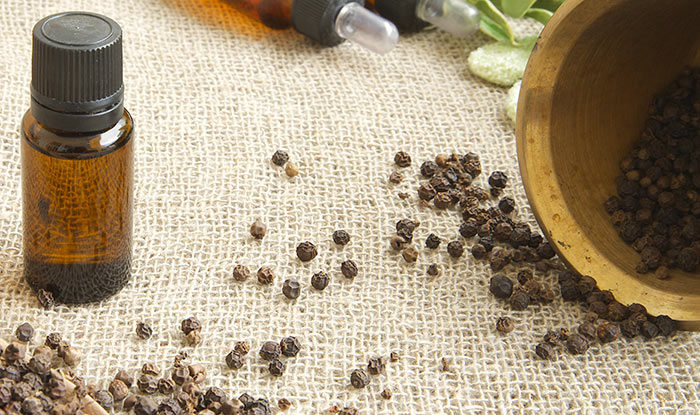The essential oil of black pepper comes from the fruit of tropical vine. These fruit are the same peppercorns used for culinary purposes, the familiar spice commonly added to food. The vine, which has heart-shaped leaves and white blooms, is extensively cultivated in South-east Asia. Black pepper comprises one of the three oldest-known spices, the other two being cloves and cinnamon. The oil is warming and comforting and surprisingly sweet; it can often add a mysterious depth to blend. In ancient times it was very highly valued: it is said of Attila the Hun that he demanded black pepper as part of the ransom for Rome.
Applications and Effects
Particularly effective for muscular aches and pains, fevers, colds, ‘flu.
- Skin: Chilblains
- Circulatory and muscular systems: Arthritis, neuralgia, poor circulation, rheumatic pain, sprains, stiffness, poor muscle tone.
- Respiratory system: Catarrh, chills. Used as a homeopathic remedy, it can relieve fevers.
- Digestive system: Colic, constipation, sluggish digestion, diarrhoea, flatulence, heartburn, loss of appetite, nausea.
- Immune system: Colds, ‘flu, infections caused by bacteria (urinary, respiratory, or digestive), viral infections.
- Mental/emotional effects: Gives stamina where there is frustration, and enthusiasm where there is indifference. Can help where there is lack of interest and vitality, such as when recovering from an infection.
Precautions
Care should be taken by those with sensitive skins, as in high concentrations it can occasionally cause irritation. Too frequent use may over-stimulate the kidneys.

